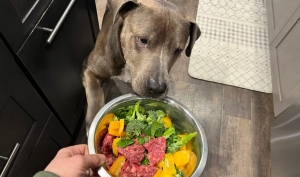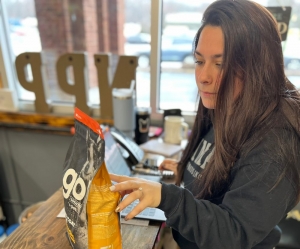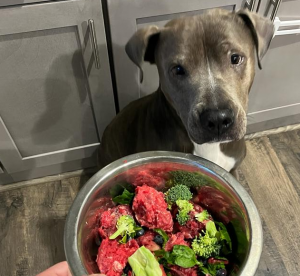 https://www.northpointpets.com/wp-content/uploads/2023/03/doglicking2-e1684163060936.png
809
1173
Tina Adams
https://northpointpets.com/wp-content/uploads/2022/08/NPP_nav_color-1-300x94.png
Tina Adams2023-03-10 03:10:232023-05-15 15:04:45Unveiling the Mystery Behind Paw Licking
https://www.northpointpets.com/wp-content/uploads/2023/03/doglicking2-e1684163060936.png
809
1173
Tina Adams
https://northpointpets.com/wp-content/uploads/2022/08/NPP_nav_color-1-300x94.png
Tina Adams2023-03-10 03:10:232023-05-15 15:04:45Unveiling the Mystery Behind Paw Licking https://www.northpointpets.com/wp-content/uploads/2023/03/doglicking2-e1684163060936.png
809
1173
Tina Adams
https://northpointpets.com/wp-content/uploads/2022/08/NPP_nav_color-1-300x94.png
Tina Adams2023-03-10 03:10:232023-05-15 15:04:45Unveiling the Mystery Behind Paw Licking
https://www.northpointpets.com/wp-content/uploads/2023/03/doglicking2-e1684163060936.png
809
1173
Tina Adams
https://northpointpets.com/wp-content/uploads/2022/08/NPP_nav_color-1-300x94.png
Tina Adams2023-03-10 03:10:232023-05-15 15:04:45Unveiling the Mystery Behind Paw Licking
Feeding your pet greens? Read This.
Greens are leafy vegetables such as spinach, kale, romaine lettuce, collard greens, and broccoli. These veggies are great natural sources of fiber, rich in vitamins A, C, and K, calcium, iron, potassium, magnesium, and essential phytonutrients. Phytochemicals within these plants offer benefits when consumed and provide antioxidant purposes as well.

Morgan’s VMX Recap
I recently attended the 2023 Veterinary Meeting & Expo (VMX) in Orlando, Fl. and came back with a treasure trove of science and information we can use to help improve the health and wellness of our pets.

Our Top 3 Greens to Add and Why
Green vegetables contain important nutrients and fibers that can help to support the growth of healthy...

The Good, Better, and Best Dental Care for Your Pet
Your pet’s dental health is an important piece of their overall health and wellness. Oral disease can be caused...

Keep Your Pet’s Heart Healthy. Without Changing Their Food
When your pet is diagnosed with a heart dysfunction or heart…

When a Simple Switch for Hades Meant Big Changes
When our loyal customer, Brandon shared his "raw story" with…

Monday
Tuesday
Wednesday
Thursday
Friday
Saturday
Sunday
Tuesday
Wednesday
Thursday
Friday
Saturday
Sunday
10am – 6pm
10am – 7pm
10am – 6pm
10am – 7pm
9am – 6pm
9am – 5pm
10am – 4pm
10am – 7pm
10am – 6pm
10am – 7pm
9am – 6pm
9am – 5pm
10am – 4pm
DIY Dog Wash closes one hour prior to store close.
Newsletter Sign-Up
Subscribe to get weekly tips, seasonal advice, and be the first to know about events, new products, sales, and more.
NorthPoint Pets is consistently recognized for excellence



How to Ensure Quality and Transparency in Pet Products
/ Nicole R. CammackThe Importance of Transparency in the Pet Industry Transparency is a buzzword that has been used frequently in recent …
Journal of Animal Science Article Full Summary, Volume 98, Issue 6, June 2020
/ Nicole R. CammackIn June of 2018, Lisa Freeman, a board-certified veterinary nutritionist from Tufts University published a blog titled “A broken heart: Risk of heart disease in boutique or grain-free diets and exotic ingredients.” This blog warned pet owners and veterinarians that ‘BEG’ (boutique, exotic, grain free) diets were causing heart disease in dogs. This left professionals and the public scrambling for more information, which was further fueled by media frenzy. As a result, the FDA launched an investigation which was complicated by sampling bias, overrepresentation of subgroups and confounding variables. For the past two years, despite additional commentary articles, scarce and vague scientific data and inconclusive FDA reports, information regarding DCM has been incomplete at best. Lack of information has been accompanied by abbreviated synopses of case studies with multiple variables and treatments, incomplete medical information and conflicting medical data and opinions from veterinary nutrition influencers.
Summary Journal of Animal Science Article, Volume 98, Issue 6, June 2020
/ Nicole R. CammackIn 2018 a blog from a veterinary nutritionist sparked a controversy between ‘BEG’ diets and heart disease in dogs. For the past two years, despite an FDA investigation, scarce and vague scientific data has created major issues for pet owners and the pet industry. For clarity, ‘BEG’ diets are known as Boutique, Exotic protein or Grain Free.
A recent article published in the Journal of Animal Science titled, “Review of canine dilated cardiomyopathy in the wake of diet-associated concerns” that appeared to be a saving grace for many advocates of ‘BEG’ diets. This paper investigated a potential association between grain-free pet food and dilated cardiomyopathy (DCM) in dogs. The authors state, “based on this review of the current literature, there is no definitive relationship between these implicated diet characteristics and DCM.” Despite this statement, realize the purpose of this paper was to identify numerous knowledge gaps surrounding DCM and nutrition, rather than to draw conclusions. While no link between ‘BEG’ (boutique, exotic, grain-free) was found, this does not mean that nutrition and other considerations are not at play.
AVMA, Nutrition & (lack of) Ethics
/ Nicole R. CammackHow many times have you heard a veterinarian or the American Veterinary Medical Association (AVMA) preach that those who …
The Truth About Feeding Your Pet Raw Goat Milk
/ Nicole R. CammackAs a supplement, raw goat milk has some great nutritional benefits for dogs and cats alike. We frequently recommend it to add hydration to a dry (kibble) diet. But what does the research say? Expert Tip: Goat milk should not be used as a primary source of nutrition.
Are All Human Foods Dangerous for Dogs?
/ Nicole R. CammackEvery day there is more information made available to educate owners on various diets available. Commonly discussed and debated topics include grain-free foods and the age-old practice of giving your pets “table food.” Should we feed human food to our pets? The short answer is it depends. Some of these foods can be very beneficial and some could have unintended negative consequences.
How to Save Money on Your Pet’s Diet During Tough Times
/ Nicole R. CammackAs the pandemic continues, many pet owners are facing financial difficulties, causing them to rethink their pet’s diet. Raw …